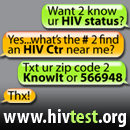NCHHSTP Experts
Kevin Fenton, MD, PhD, FFPH
Director, National Center for HIV/AIDS, Viral Hepatitis, STD, and TB Prevention
Kevin Fenton, MD, PhD, FFPH, is the director of the National Center for HIV/AIDS, Viral Hepatitis, STD, and TB Prevention (NCHHSTP), Centers for Disease Control and Prevention (CDC). In November 2005, Fenton was named director of the National Center for HIV, STD, and TB Prevention, which was renamed NCHHSTP in March 2007 to reflect the addition of CDC’s Viral Hepatitis program. He previously served as chief of CDC’s National Syphilis Elimination Effort since January 2005. He has worked in research, epidemiology, and the prevention of HIV and other STDs since 1995 and was previously the Director of the HIV and STI Department at the United Kingdom’s Health Protection Agency.
Fenton has spearheaded the development of a number of national HIV, STD and behavioral surveillance and research programs in the U.K. and Western Europe including the National Chlamydia Screening Program in England, the 2nd British National Survey of Sexual Attitudes and Lifestyles and the European Surveillance of STI (ESSTI) Network. Fenton is a Fellow of the Faculty of Public Health of the Royal Colleges of Physicians of the United Kingdom.
Richard Wolitski, PhD
Acting Director of CDC’s HIV/AIDS Prevention Program
Dr. Richard Wolitski is Acting Director of the Division of HIV/AIDS Prevention (DHAP) in the National Center for HIV/AIDS, Viral Hepatitis, STD, and TB Prevention. He began his career in HIV prevention research in 1986 at California State University Long Beach and joined the Centers for Disease Control and Prevention (CDC) in 1995. Wolitski has been an active prevention researcher and has held multiple leadership positions in the Division including Chief of the Prevention Research Branch and Deputy Director for Behavioral and Social Science.
For more than 20 years, Wolitski’s research has focused on understanding the individual and social/structural determinants of HIV risk as well as the development and testing of interventions to reduce this risk. His research has involved a wide range of populations, including men who have sex with men, injection drug users and their sex partners, commercial sex workers, incarcerated men, and homeless persons. As a person living with HIV, he has worked to promote greater recognition of the effects of HIV stigma and the prevention needs of men and women living with HIV. Wolitski has played key leadership roles in a number of important HIV intervention trials, including the AIDS Community Demonstration Projects (Community PROMISE), the Seropositive Urban Men’s Intervention Trial (SUMIT), Project START, and the Housing and Health Study.
Wolitski has been the lead author or co-author of more than 90 peer-reviewed articles and book chapters. He serves as an associate editor of AIDS Education and Prevention and is a member of the editorial board of AIDS and Behavior. He has co-edited three books---the most recent of these, Unequal Opportunity: Health Disparities among Gay and Bisexual Men in the United States, was published by Oxford University Press in 2008. Wolitski received his PhD in Community Psychology from Georgia State University and his master’s degree in Psychology from California State University Long Beach.
John M. Douglas, Jr., MD
Director of CDC’s STD Prevention Program
Dr. John M. Douglas, Jr., is Director of the Division of STD Prevention at NCHHSTP, CDC. Douglas brings more than 30 years of experience and leadership in the field of STD prevention to his role as Director.
Prior to joining CDC in July 2003, Douglas distinguished himself in a combination of key management, science, and medical positions for the Denver Department of Health and Hospitals. These included Director of STD Control; Director, Denver Public Health Virology Laboratory; Attending Physician in Medicine and Infectious Diseases, Denver General Hospital; and Medical Director of the Denver STD Prevention Training Center. He was also the Principal Investigator for the Denver site of Project RESPECT, a CDC-funded, multi-site study to test behavioral prevention interventions in an STD clinic setting; and Co-principal Investigator for the Denver site of HIV Network for Prevention Trials Vaccine Preparedness Study, an NIH-funded multi-site HIV vaccine preparedness study.
In addition to his work with the city of Denver, Douglas held various appointments at the University of Colorado Health Sciences Center. In 1996, he was named Clinical Teacher of the Year for the Division of Infectious Diseases, and in 1999, he was appointed Professor in the Departments of Medicine and Biometrics and Preventive Medicine.
Douglas has written more than 100 scholarly articles, several book chapters, and more than 150 research abstracts on STD and HIV prevention, with a special emphasis on genital herpes and genital HPV infection. Douglas is a member of the Infectious Disease Society of America, the American STD Association, the American Social Health Association, and the American College of Physicians, and prior to joining CDC, he served as a member of CDC’s HIV/STD Advisory Committee. He is a graduate of Davidson College in North Carolina and received his medical degree from Harvard Medical School.
RADM Kenneth G. Castro, MD
Assistant Surgeon General, U.S. Public Health Service
Director of CDC’s Tuberculosis Elimination Program
Dr. Kenneth G. Castro has served as the Director of Division of Tuberculosis Elimination at CDC since January 1993. In this role, Castro leads the team of technical experts devoted to tuberculosis (TB) elimination efforts in the United States: his division sponsors TB prevention, control, and research activities throughout the nation and other parts of the world.
Since 1995, he has served as co-Chair of the U.S. Federal Tuberculosis Task Force. Recognizing the importance and magnitude of global tuberculosis, Castro has advanced the involvement by the U.S. in global tuberculosis control efforts, serving as an expert advisor to the World Health Organization (WHO) and the International Union Against Tuberculosis and Lung Diseases. He is a founding member of the global Stop TB Partnership and member of its Coordinating and Executive Boards. Since the 2006 description of extensively drug resistant (XDR) TB, he has provided national and global leadership in the development of a coordinated response to this urgent health problem.
In an unusual distinction afforded to a division director, Castro, who is a Commissioned
Corps Officer in the U.S. Public Health Service, was promoted to the flag rank of Assistant Surgeon General (RADM, 0-7), in May 2000. In September 2008, RADM Castro was designated CDC/ATSDR Lead, Commissioned Corps. In this capacity he acts as the Flag representative with oversight for more than 800 Commissioned Officers at CDC/ATSDR.
Prior to serving as Director of CDC’s Division of TB Elimination, Castro worked as the assistant director for TB and HIV, Office of HIV/AIDS at CDC from May to December 1992. He was appointed to the office of the Associate Director of HIV/AIDS to coordinate CDC-wide HIV-associated tuberculosis activities in May 1992, after serving for almost two years as the assistant chief of the epidemiology branch in the Division of HIV/AIDS in the National Center for Infectious Diseases. From July 1989 until August 1990, he served as special assistant to the director for science in the Division of HIV/AIDS. Castro began his career with CDC in 1983 as an Epidemic Intelligence Service (EIS) officer with the AIDS Program, where he became a staff medial epidemiologist after completing the EIS training in 1985.
Castro, a physician-scientist trained in epidemiology, has a specialty in internal medicine
and subspecialty in infectious diseases. He received his bachelor’s degree in 1974 from the University of Puerto Rico; completed post-graduate biology studies at Northeastern University in Boston in 1976, and received his medical doctorate from the State University of New York at Stony Brook School of Medicine in 1980. Castro went on to complete his internal medicine postgraduate training in 1983 at the residency program in social medicine at the Montefiore Medical Center, Albert Einstein College of Medicine in New York. From 1988 until 1989, he continued his education, completing a fellowship in infectious diseases at the Emory University School of Medicine, where his work focused on describing the increase in the number of people with TB and its association with the HIV/AIDS epidemic. Since 1988, Castro has served as an adjunct clinical faculty member of the Division of Infectious Diseases, Emory School of Medicine, and at the infectious diseases clinic at Grady Memorial Hospital in Atlanta.
An award-winning author of more than 120 scholarly publications, Castro serves as a
peer reviewer for numerous scientific journals and is an associate editor for the journals
International Journal of Tuberculosis and Lung Disease and Emerging infectious Diseases. He also maintains memberships in the leading scientific societies in his field.
A native Puerto Rican, Castro speaks fluent Spanish, and has frequently served as advisor to the Puerto Rico Department of Health, the Pan American Health Organization, World Health Organization, and several Ministries of Health in countries where TB and HIV constitute major public health problems. In 2008 Castro was recognized by the Hispanic Officers Advisory Committee, U.S. Public Health Service Commissioned Corps with the prestigious Juan Carlos Finlay award.
John Ward, MD
Director of CDC’s Viral Hepatitis Program
Dr. John Ward is Director of the Division of Viral Hepatitis at NCHHSTP, CDC. Ward is responsible for planning and directing national and international research, surveillance and public health programs related to viral hepatitis prevention and control.
In addition to his work in viral hepatitis, Ward’s experience includes 14 years in the field of HIV/AIDS conducting early studies of AIDS transmission, natural history and diagnosis, evaluating prevention measures to protect the blood supply and directing national HIV/AIDS surveillance. Ward has also served as Editor of the Morbidity and Mortality Weekly Report (MMWR), CDC’s primary health publication. As Editor, Ward created the Epidemic Information Exchange (Epi-X),a secure, moderated system for public health officials to report and discuss disease outbreaks and other health events.
Ward has authored over 100 scientific publications and recently served as Editor for Silent Victories, a history of public health in the 20th century published in 2007 by Oxford University Press. Ward received his medical degree from the University of Alabama School of Medicine in Birmingham and completed an internship and residency in internal medicine at the University of Alabama Hospitals with additional postgraduate training at the London School of Tropical Medicine and Hygiene, CDC’s Epidemic Intelligence Service and the infectious diseases fellowship program at the University of Washington Medical Center in Seattle. He holds a clinical faculty appointment with the Department of Medicine, Emory University.



